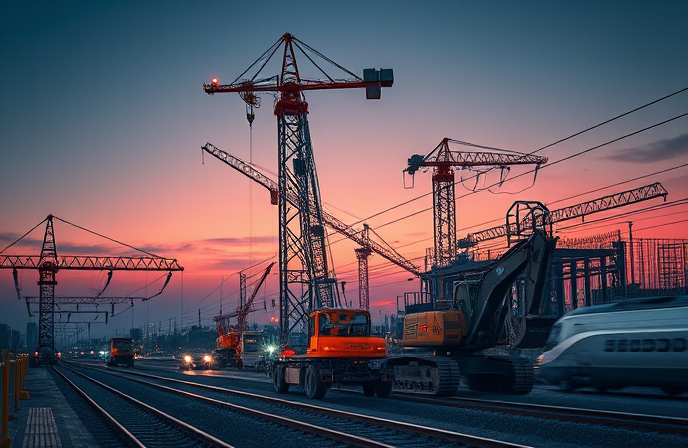ScotRail’s All-Day Fare Trial: Success or Failure?

Introduction
This article analyzes the recent six-month trial implemented by ScotRail, the government-owned railway operator in Scotland, to simplify its fare structure. The trial, running from October 2nd, 2023, to March 31st, 2024, eliminates the existing peak and off-peak fare distinctions in favor of a single all-day ticket. This initiative is a key component of the Scottish government’s broader strategy to encourage a modal shift (a change in the way people travel) from private automobiles to public rail transportation, thereby contributing to its ambitious net-zero emission goals. The trial’s impact is multifaceted, affecting both commuters and occasional travelers differently. While it aims to reduce overall transportation costs and simplify the fare system, its effectiveness in achieving both these objectives and its long-term implications for ridership and revenue generation will be closely scrutinized. This analysis will delve into the mechanics of the fare restructuring, assess its potential effects, and examine its role within the larger context of sustainable transportation policy.
Simplifying the Fare Structure: A Move Towards All-Day Tickets
ScotRail’s traditional fare system utilized a complex structure of peak, off-peak, and super off-peak fares, which varied depending on the time of day and day of the week. This complexity often led to confusion among passengers and potentially discouraged ridership. The new all-day ticket simplifies the system considerably, removing the need for passengers to understand and choose between different fare types. While seemingly straightforward, the implementation necessitates a careful recalibration of fares. For some routes, the all-day fare is equivalent to the previous off-peak price, representing a reduction for many peak-time commuters. However, for other routes, both the highest (peak) and lowest (super off-peak) fares are eliminated, and a new median price is introduced. This means some passengers, particularly those who previously benefited from super off-peak fares, may experience a fare increase during the trial period.
Impact on Commuters and Occasional Travelers
The trial’s impact is not uniform across all passenger segments. Regular commuters who purchase season tickets (pre-purchased tickets valid for a set period) will be offered partial refunds to address potential fare disparities. This acknowledges the financial commitment these passengers have already made. Occasional travelers, on the other hand, will experience a varied impact depending on their travel patterns and chosen routes. Some will see a reduction in fares, while others may encounter increases. This differentiation underscores the complexity of achieving fare simplification while maintaining a revenue-neutral or revenue-positive outcome for the rail operator.
The Broader Context: Modal Shift and Net-Zero Targets
The fare simplification trial is inextricably linked to the Scottish government’s overarching goal of achieving net-zero greenhouse gas emissions. By making rail travel more affordable and accessible, the government aims to incentivize a modal shift away from car usage. This policy initiative acknowledges the significant contribution of the transportation sector to carbon emissions and positions rail as a cleaner and more sustainable alternative. The success of this strategy will depend not only on the financial attractiveness of rail travel but also on the availability and reliability of the service, factors that are equally critical in attracting passengers.
Conclusion
ScotRail’s six-month all-day ticket trial represents a bold experiment in fare simplification and its potential impact on promoting sustainable transportation. The elimination of peak and off-peak fares simplifies the ticketing system, potentially increasing ridership by removing a layer of complexity. However, the introduction of a new median fare for some routes may lead to fare increases for certain passengers, necessitating adjustments and potentially impacting public perception. The trial’s success hinges on a delicate balance between attracting new riders through lower fares for some while ensuring the financial viability of the rail system. The provision of partial refunds to season ticket holders is a thoughtful measure addressing potential inequities. The long-term efficacy of this initiative will need to be carefully evaluated, considering not only ridership figures but also its influence on overall revenue and the extent to which it contributes to the larger goal of a modal shift towards sustainable public transportation. Further data analysis on ridership changes, revenue impacts, and passenger satisfaction throughout the trial period will be crucial in determining the long-term sustainability and applicability of this simplified fare structure. The ultimate success will be measured not only by increased ridership but also by its contribution to achieving Scotland’s net-zero emissions targets. The outcome of this trial holds significant implications for other railway operators grappling with similar challenges in fare optimization and the pursuit of environmentally conscious transportation policies.



